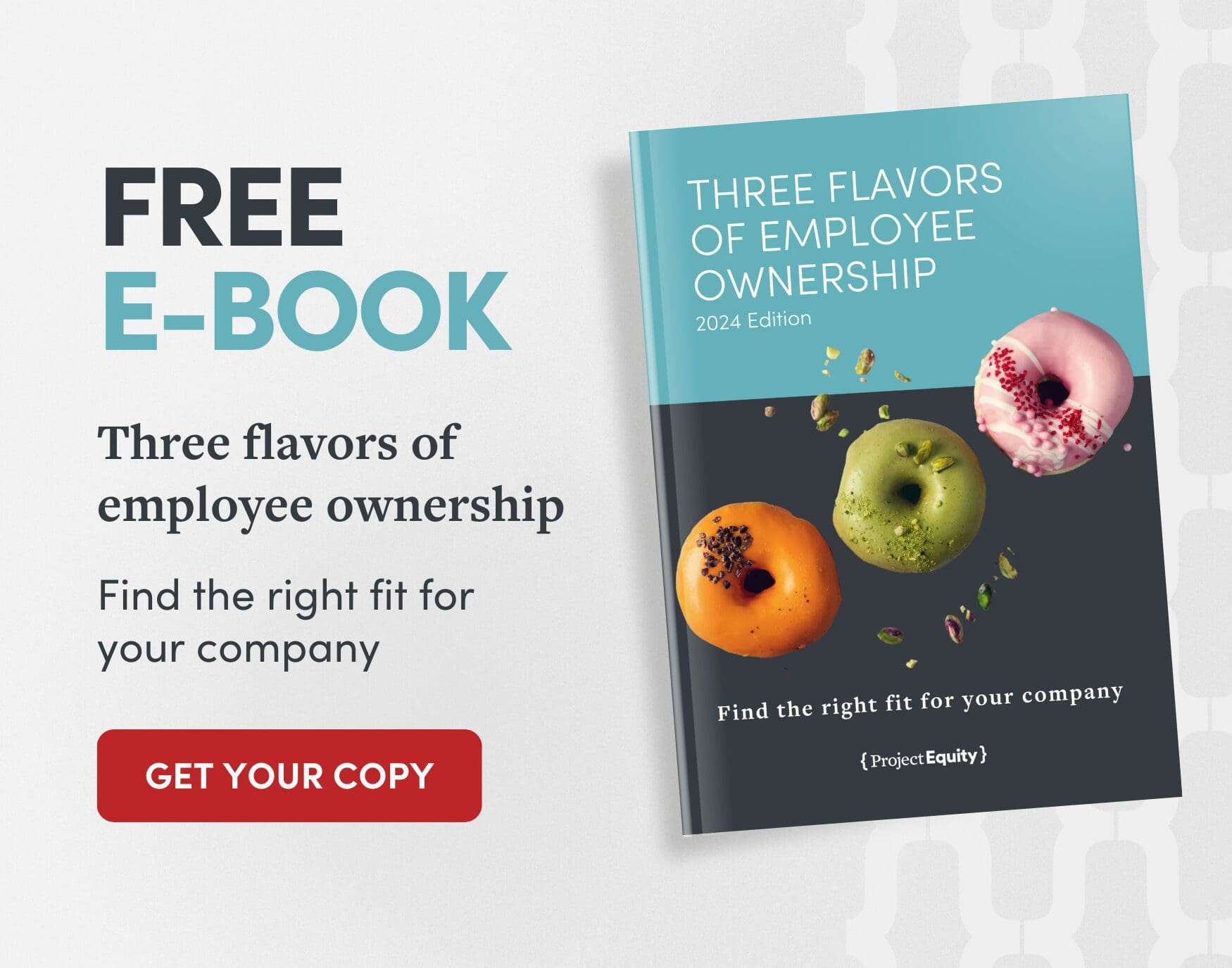Urban Ore
- Berkeley, CA
Background
Founded in 1980 by Dan Knapp, and now co-owned by Dan and his wife Mary Lou Van Deventer, Urban Ore is a Berkeley, CA-based company whose mission is “To End The Age of Waste.” They operate a 3-acre facility that sells recycled goods to the public, and that on an average day, prevents nearly 20 tons of waste from entering local landfills. In 2017, Urban Ore had about 38 employees.
History and why it is becoming employee-owned
In 1980 Dr. Dan Knapp and two partners set up Urban Ore near the tipping face of the landfill in Berkeley, California. It had no shelter from the elements, no furnishings or fixtures, and all of its merchandise had just been salvaged from the items dumped. Some people said this kind of business couldn’t be done. But from its humble bootstrap beginnings this all-purpose reuse and recycling company has grown to legendary proportions, both in size and reputation. Urban Ore has become a fixture on the Bay Area green business scene, proudly carrying the “End the Age of Waste” banner as it welcomes hundreds of retail customers daily to its 130,000-square-foot ecopark/salvage lot/secondhand store.
If it can be reused or recycled the chances are you’ll be able to find it at Urban Ore. The company takes in up to six tons of salvaged building materials, appliances, household goods, electronic goods, collectibles and other coveted and valuable items each and every day, lightening the load on area landfills in the process.
They say that all good things must come to an end sooner or later, but for Urban Ore the end is nowhere in sight. Dan Knapp and his wife and co-owner Mary Lou Van Deventer are moving closer to retirement, but Bay Area residents will continue to rely on Urban Ore for bargains and amazing finds for many years to come, thanks to the business’s coming transition to an employee-owned coop.
For Dan and Mary Lou, Urban Ore is more than just a locally-owned, independent business enterprise: it’s also a central staging area for more responsible environmental practices and a hub to encourage community activism and affiliated ecologically-friendly initiatives. Naturally, this is the type of business that tends to attract idealistic and socially committed workers. After investigating the possibilities, Dan and Mary Lou concluded that selling the company to their trusted and dedicated employees is the best way to ensure that Urban Ore will maintain its allegiance to their far-reaching vision into the next generation.
As they plan the conversion process, everyone involved with Urban Ore is excited about the future, which includes a vision of opening reuse and recycling facilities in other locations where the Zero Waste concept has yet to take flight. The employee ownership model is vital and dynamic enough to make this happen, and Dan and Mary Lou are convinced they’re leaving their Zero Waste project in good and responsible hands.
What could more could any retiring business owner ask for than that?
Media coverage on NPR
Baby boomer entrepreneurs hope co-op model will keep business going
By Sam Harnett
May 03, 2017 | 10:20 AM
original NPR Marketplace Report can be found here >>
For 36 years Dan Knapp and Mary Lou Deventer have made money out of other peoples’ trash. – Sam Harnett
Berkeley’s reclaimed trash company Urban Ore has diverted tons of garbage from the dump and into the hands of customers, and the company has become a key part of Berkeley’s recycling ecosystem. But it could disappear.
That’s because the owners of the 36-year-old business, Dan Knapp and Mary Lou Van Deventer, are ready to stop working.
Many of America’s small businesses are in a similar position. Baby boomers hold about 45 percent of the country’s privately owned businesses that employ workers, according to a new analysis of U.S. Census data by the nonprofit Project Equity. As the owners retire, many shut down or sell off their businesses.
“We bought it at $3 million and it’s worth three times that now,” Knapp said. Urban Ore’s owners have a different plan, even though selling off the property could prove lucrative. Urban Ore’s three-acre warehouse in Berkeley is a real estate gold mine.
“Both our lawyer and our banker have advised us to sell the property and take the money,” Van Deventer said. “And we say, ‘But we said we spent our lives building the business.’”
“They’re such valuable resources,” Wechsler said. “So I am standing on the shoulders of giants here.”The couple say the employees are the only ones who know how to keep their business running. Max Wechsler, the Ore’s assistant manager, would be excited to take over Iron Ore.
Alison Lingane, who co-founded Project Equity, a nonprofit that helps employees buy out businesses like Urban Ore, hopes other boomer-owned companies follow Urban Ore’s lead.
“Most people aren’t aware that employee ownership is an option,” Lingane said, adding, “that they have a potential buyer right there under their nose.”
Lingane said she is concerned that when business owners retire, they will take their businesses with them or sell to larger companies. She said that will hurt communities by further concentrating wealth. Project Equity gets a percentage of the sale for helping companies transfer businesses to employees.
Van Deventer said she can’t wait to hand over Urban Ore.
“When you’ve been in the business this long, and you’ve seen so much flow past your eyes every single day. You lose your lust to own and possess,” she said.
Urban Ore is in the process of preparing the business to be sold to its 38 employees.
Ownership story details
Transitioned
2017
Employees
38
Industry
Type of EO
Topic
Not applicable


